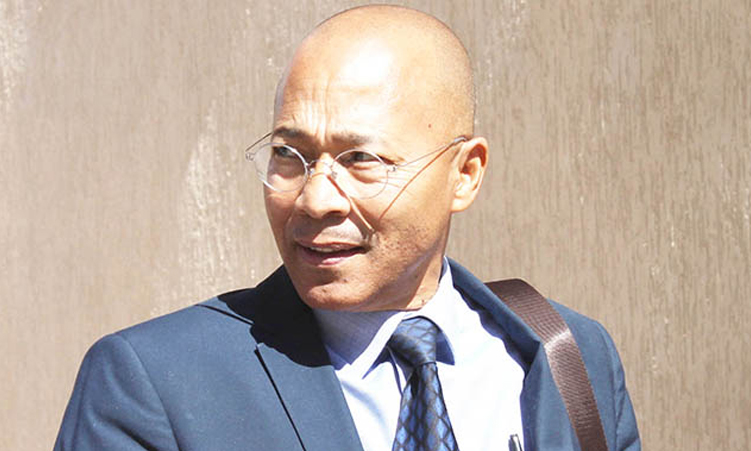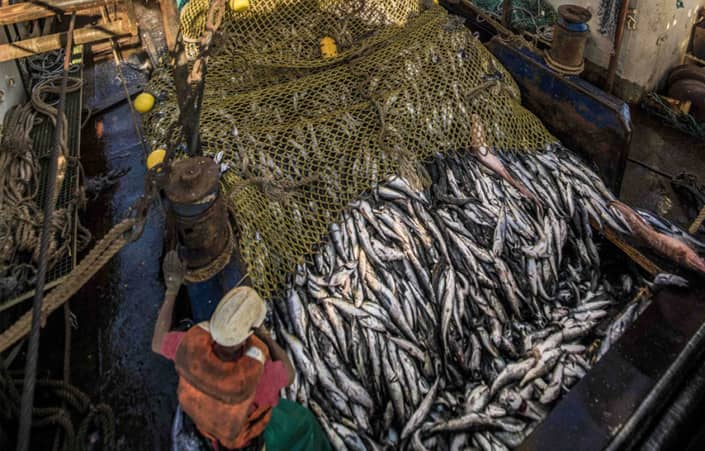Political parties are disagreeing over an electoral law that prohibits them from dishing out food to potential voters.
Some parties support the law while others say it’s unrealistic and should be reviewed.
The Electoral Act of 2014 says a person who gives or accepts food in exchange for a vote commits an offence.
If convicted, such a person can be fined N$20 000 or be imprisoned for a period not exceeding four years.
The law states that anyone who gives or provides food, drinks, entertainment or other benefits with the intention to improperly influence voters is committing an offence.
A voter who accepts these provisions in a corrupt manner is also committing a crime.
Chief electoral and referenda officer at the Electoral Commission of Namibia (ECN) Peter Shaama this week failed to provide answers on the interpretation of the law.

He instead referred the questions to ECN spokesperson Mulauli Siluka.
Siluka did not respond to questions sent to him on Tuesday.
Swapo and other political parties have been handing out food during their campaign rallies, the latest being at its rally at Walvis Bay on Saturday, where food was thrown at people.
Political analyst Henning Melber says dishing out food during rallies is “unethical and immoral”.
He says it is bribing those in need to vote for them.
“Political parties have no obligation to feed those in need and don’t do so in between elections. It is the government’s responsibility to ensure people do not suffer from hunger,” he says.
“That Swapo as the party in government uses food parcels to rally support in the elections makes a mockery of good governance,” he says.
Swapo deputy secretary general Uahekua Herunga says his party is not in contravention of the act.
“I am not aware of that contravention at all,” he says.
HUNGRY NATION
Namibia has reported several deaths due to hunger.
The Office of the Prime Minister earlier this year said 1.1 million people are facing hunger.
Human rights lawyer Norman Tjombe says it is concerning that political parties only provide food to people during political rallies.
“These political rallies are exclusively aimed at soliciting votes and thus, it can be seen that the provision of food is for the purpose of influencing voters to support and vote for that particular political party, and it could be that it may be in violation of section 184 (1) of the Electoral Act,” he says.
He, however, says it will be difficult for the prosecution to prove that the food was provided “corruptly” and for the purpose of “corruptly influencing” the voter.

According to University of Namibia law lecturer John Nakuta, the relevant section does not prohibit the dishing out of food at campaign events.
“The section prevents corrupt practices from happening within the electoral process. If someone wants to corrupt another person directly or indirectly, or with the view to influence the electoral process, or outcome, that person is committing an offence,” he says.
He says the section cannot be used to say political parties should not give food to the attendees of their rallies.
‘US, WE ARE EATING’
Independent Patriots for Change (IPC) spokesperson Imms Nashinge says giving food to attendees of campaign rallies is a “crazy idea by desperate parties” who want to take advantage of hungry people.
Popular Democratic Movement secretary general Manuel Ngaringombe says the trend does not constitute vote buying.
“We are doing it to appreciate the people for coming, since some come as early as 09h00, while the rally starts at 14h00,” he says.
Ngaringombe says the section is misplaced and needs to be amended.
Landless People’s Movement (LPM) spokesperson Lifalaza Simataa agrees that the gesture is not a breach of the act.
“The food is not the main reason why the people are gathered,” he says.
Popular Democratic Movement president McHenry Venaani in April during a campaign rally at Okalongo in the Omusati region said Swapo brings residents of Okalongo drought-relief food when they hear Venaani is campaigning at Okalongo.


“If they give you food, eat, but don’t sell your soul for food. They will come with many promises,” he said at the time.
Lawyer Dirk Conradie, who is aligned with the IPC, says people fight for food at national events and political campaigns because they are hungry.
He says political parties make mistakes by inviting the public to their campaigns and promising them food.
“Rather not promise people food to come to a rally. If they come, whether there is food or not, they will always tear themselves apart because the one behind will think there is nothing for me,” Conradie says.
He says his party does not hold rallies.
“We don’t have rallies, we have meetings. Those who come there come genuinely to listen to what we want to tell them. We have never had a rally where we said food will be distributed. We also don’t invite people because certain artists will perform at our event,” he says.
THE NORM IN NAMIBIA
This week, prime minister Saara Kuugongelwa-Amadhila warned political leaders in the regions to stop “playing politics” in the government’s food distribution programme.
“The infighting by political heads in the regions must come to an end, because you people are busy playing politics there, while ordinary, hungry Namibians are waiting to receive their food from those of you who are entrusted with that responsibility,” she said.
“The theft of drought-relief food is another issue hampering government efforts. We have taken note of these challenges, and we will soon put an end to it,” she said.
Stay informed with The Namibian – your source for credible journalism. Get in-depth reporting and opinions for
only N$85 a month. Invest in journalism, invest in democracy –
Subscribe Now!










